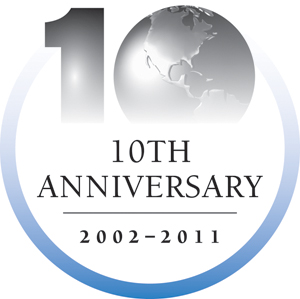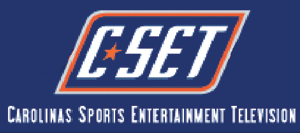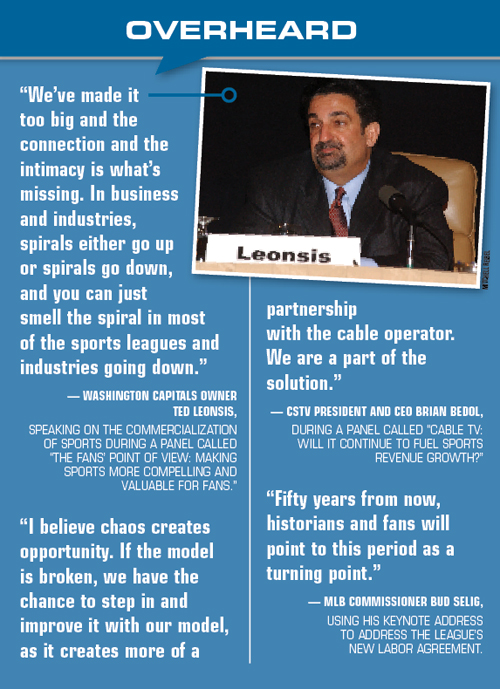Television dominated much of the conversation at the 2003 World Congress, as attendees discussed everything from the future of media rights and the industry’s migration to cable, to their high hopes for high-definition television. The event was held at the Waldorf-Astoria in New York City.The rise of league-owned networks
A discussion about the revenue-sharing deal between the Arena Football League and NBC raised the question as to whether the relationship would serve as a blueprint for other sports rights deals.
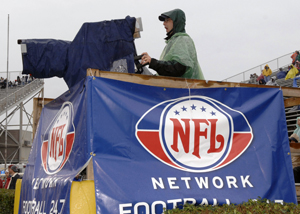 |
GETTY IMAGES
Panelists dicussed a media landscape that included more league-owned networks. |
CBS Sports President
Sean McManus said the NBC-AFL model would be difficult because year-to-year revenues are unknown. “These leagues need guaranteed revenue streams, and when you talk about them sharing the upside, they like to talk about that. But when it comes to sharing the downside, which the AFL is sharing with NBC, it’s unfair to assume they’re going to take that risk.”
HBO Sports President Ross Greenburg added: “I think there will be more of a migration into leagues owning networks that they built, a la the NFL channel. So the migration will probably be that the leagues will start to keep the product for themselves if they can build infrastructures in that network and channel that they create, in order to sell their own advertising and make their own money.”
Greenburg’s prediction played out in the marketplace as NFL Network started providing prime-time games, and MLB launched its own network as well to provide live game coverage.
Sponsors speak out
Tony Ponturo, then vice president of global media and sports marketing for Anheuser-Busch, took on the trend of leagues and events selling non-exclusive sponsorships.
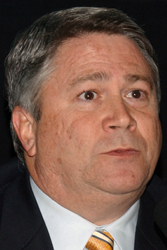 |
| Ponturo |
“You cannot ask someone to spend $30, 40, 50 million, and they say, ‘Oh, by the way, we’re going to sell this little thing for a million to your competition.’ It’s unconscionable, and it is staggering how prevalent that is, at least in the beer category.”
The late Chuck Fruit, then senior vice president of worldwide media and alliances for Coca-Cola, said: “We are going to be more selective as we go forward in terms of the number of relationships and sponsorships we enter into. … We’re going to make a bet on which half we think is working and which half isn’t working, and move our money from one pot to the other.”
A call for better marketing efforts
Dallas Mavericks owner Mark Cuban used one panel to question the job the sports industry does in marketing itself to consumers.
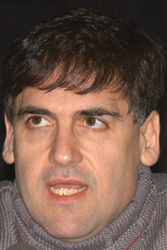 |
| Cuban |
“When I talk about our marketing abilities, I look at the Westminster Dog Show pulling twice [the rating that] the Kings vs. Spurs pulls, and I ask myself, ‘How can that be?’” Cuban asked. “That’s not a knock on the NBA and that’s not a plug for the Westminster Dog Show. It just makes me ask the question, ‘Are we missing an opportunity? Are we not doing our job as well as we could?’”
Cuban continued, “Right now, our marketing consists of marketing to people already in the church by promoting in our games, and I don’t think that’s going to get the job done in the future.”
He predicted that high-definition television was “going to make a huge difference in the promotion and selling and viewership of sports.”
However, Turner Sports President Mark Lazarus questioned whether consumers would be in any big rush to buy HDTVs, saying, “It’s important to remember that there are still a lot of consumers out there whose VCRs are still blinking ‘12:00.’”
Was migration to cable the start of a trend?
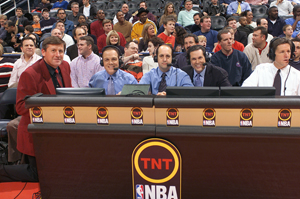 |
NBAE / GETTY IMAGES
The NBA’s shift to cable had media executives wondering if other major properties would follow. |
CBS Sports President
Sean McManus led a panel that looked at the future of sports on cable television, and much of the talk centered on the NBA’s recent decision to shift some of its rights to cable.
McManus said he didn’t see the NBA’s move as the start of a trend, saying he was a “firm believer that most of the major sports you see on network television today are going to stay on network television.”
Yet HBO Sports President Ross Greenburg countered: “We’re all dinosaurs up here to one degree in that we all grew up with ABC, NBC, CBS. … All of our kids do not differentiate to a large degree between the cable television universe and the networks. When they watch a television show, they don’t care what channel it’s on.”
The migration to cable continued over the next several years, with “Monday Night Football,” select MLB playoff and NHL Stanley Cup games, and the BCS championship among the programming gradually showing up on cable.
Who was right on media rights?
CBS President and CEO Les Moonves delivered a keynote address where he stated, “The days of networks paying ever-escalating rights fees may be over.”
 |
MITCHELL REIBEL
Les Moonves wondered if rights fees would flatten out. |
Many other industry observers at the time said they, too, expected TV sports rights fees to flatten.
CBS Sports President Sean McManus said the Olympics could be the exception: “Major corporations are trying to figure out how they can take the Olympics over a period of a number of years and maybe generate some new revenue.”
Predictions of flattening rights fees turned out to be wishful thinking as most of the top sports properties continued to flex their muscles. In fact in 2010, CBS struck a unique, 14-year, $10.8 billion partnership with Turner to share the NCAA tournament.
As for the Olympics, NBC later that year agreed to pay $2.2 billion for rights to the 2010 and 2012 Games, an increase of more than 30 percent over what the network had agreed to pay for the 2006 and 2008 Olympics.
One cat's vision for a network
Given that he founded BET, no one was surprised when Bob Johnson’s plan for growing his new Charlotte Bobcats NBA franchise involved forming a regional sports network tied to the team.
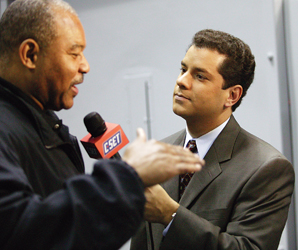 |
SEAN BUSHER / C-SET
The Charlotte Bobcats pulled the plug on their regional sports network after only a few months on the air. |
“You have to turn this product into a regional-based business, where your sports team is the entertainment anchor for your product, for your entertainment company built around sports,” Johnson said during a panel discussion.
Johnson said “the basketball product is going to be the anchor tenant, if you will, but we’re going to try to put on every college sport that we can get our hands on in the Carolinas. We’re going to go after high school sports. We’re going to go after motor speedway kind of sports.”
Johnson launched C-SET in 2004, but closed the RSN after just seven months, unable to secure wide distribution and sufficient content. He sold the Bobcats in 2010 to Michael Jordan.
Rogge talks Athens, New York City's bid for Olympics
 |
MITCHELL REIBEL
Jacques Rogge said the IOC had no anti-American sentiment. |
International Olympic Committee President
Jacques Rogge used his keynote address to issue a public vote of confidence to the beleaguered organizers of the Athens 2004 Olympic Games. Weeks earlier he had scolded Athens organizers for losing momentum in their race to get facilities and infrastructure ready for the event, but this time forecasted “great Games” if organizers stayed on schedule.
Later, Rogge addressed New York City’s bid to host the 2012 Summer Olympics and tried to assure people that no anti-U.S. movement existed at the IOC. “The [2012] vote is in 2005. That is a long way away. There is no anti-American sentiment in the IOC, let me assure you.”
Athens got its buildings ready in time, but just barely. As for New York’s bid, the city lost out to London in the second round of voting. Then, in 2009, Chicago lost its bid to host the 2016 Games in the first round, with the IOC awarding the event to Brazil.


